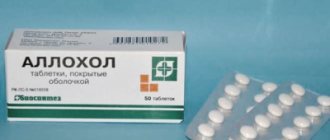Composition and release form
Rinofluimucil is a medicine available in the form of nasal drops. This drug contains two active substances: acetylcysteine and tuaminoheptane sulfate. The first is a mucolytic - a drug that thins mucus of a purulent and mucopurulent nature. Acetylcysteine also has a slight anti-inflammatory effect. Tuaminoheptane sulfate has a vasoconstrictor effect, due to which swelling of the nasal mucosa subsides and discharge decreases. Thus, due to its composition, Rinofluimucil during pregnancy liquefies the contents of the nasal cavity, helps get rid of it and promotes free breathing. Rinofluimucil is a local drug and, if the dose is observed, is not absorbed into the systemic circulation, therefore it does not harm the fetus.
The drug begins to facilitate nasal breathing a few minutes after use, liquefaction of the secretion occurs after 2-3 hours. Rinofluimucil can be used during pregnancy for the following indications:
- Acute and chronic rhinitis with mucopurulent or purulent contents of the nasal cavity.
- Vasomotor inflammation of the nasal mucosa.
- Inflammation of the paranasal sinuses with purulent exudate.
Instructions for use
The use of Rinofluimucil in the 1st trimester is highly not recommended, since at the moment the formation of all organs and systems of the unborn child is taking place. The use of any drug can disrupt this process and lead to congenital anomalies and diseases. It is believed that Rinofluimucil in a therapeutic dosage cannot enter the fetal bloodstream, but there is always a chance that this will happen, so it is preferable not to use medications in the 1st trimester. Rinofluimucil during pregnancy can be used only as directed and under the strict supervision of a doctor, since it has certain indications, contraindications and dosage regimen. Taking Rinofluimucil during pregnancy in the second trimester is possible if there are strict indications for this. Self-prescription of the drug is prohibited; the doctor must select the dosage to avoid the drug entering the systemic bloodstream. It is not recommended to use the drug for more than a week in a row. The use of Rinofluimucil in the third trimester is possible when the estimated risk to the unborn child is lower than the possible benefit to the mother. The drug does not affect labor; it can be used in the last weeks of pregnancy. The drug is used using a special sprayer in aerosol form. You should insert the tip of the spray into the nasal passage and inject the product with pressing movements. Usually the doctor prescribes 2 doses of aerosol in each nostril 3-4 times a day. The course of therapy with Rinofluimucil should not be more than 7 days in a row.
“Rinofluimucil” during pregnancy: instructions for use, contraindications, analogues, reviews:
With the onset of pregnancy, serious changes occur in a woman's body. Hormonal changes and a natural decrease in immunity increase the chances of viral infections and colds.
Doctors recommend refraining from using medications, especially in the first trimester, because many drugs do not have the best effect on the development of systems and the formation of the baby’s organs.
However, it is not always possible to exclude drug therapy. Sometimes the expectant mother cannot do without the use of pharmaceutical products.
If you previously used Rinofluimucil nasal spray without fear, now you will have to think about the possibility of using it.
Description and principle of operation of the medication
"Rinofluimucil" is a nasal spray that contains two main substances:
- acetylcysteine – has anti-inflammatory, antioxidant and mucolytic effects;
- Tuaminoheptane – relieves swelling and eliminates hyperemia of the mucous membranes.
The drug is produced in glass containers. The package includes a spray nozzle.
Due to the fact that the medication is available without a prescription, Rinofluimucil can be purchased independently during pregnancy.
But another question arises: can expectant mothers use it? Experienced specialists and information from the instructions will help you answer this question.
"Rinofluimucil" during pregnancy: what does the summary say?
In the instructions for use, the manufacturer indicates a separate paragraph that prescribes the possibility of treating expectant mothers and women during lactation with this drug.
After reading it, you can find out that the instructions for use do not prohibit the use of the drug “Rinofluimucil” throughout the entire gestation period. The price of the medicine varies from 250 to 300 rubles, which is relatively inexpensive.
Such accessibility and positioned safety make the nasal spray popular among expectant mothers. However, therapy with the stated drug does not always turn out to be justified and appropriate.
Indications for use of the drug
Women sometimes use Rinofluimucil spray during pregnancy unreasonably. Many expectant mothers are faced with the concept of “rhinitis during pregnancy.” This is a condition in which the nasal mucosa becomes thick and swollen.
It is associated with hormonal changes. Some women begin to worry about such rhinitis only before childbirth, while others suffer from the middle of their pregnancy. The use of Rinofluimucil spray in this case is unjustified.
The drug may relieve symptoms, but will not eliminate the problem, as it is intended to treat other pathologies.
In what cases does a woman really need Rinofluimucil (during pregnancy)? Indications for use of the drug are as follows:
- runny nose, accompanied by the release of thick purulent secretion;
- vasomotor rhinitis;
- sinusitis, sinusitis;
- chronic rhinitis with inflammation of the sinuses of the nose and ear.
"Rinofluimucil": contraindications
During pregnancy, the medicine should not be used for self-medication. If a woman feels deteriorating in her health or has cold symptoms, she should visit a doctor.
Only a doctor can assess the situation correctly and decide whether Rinofluimucil spray should be used or whether it can be abandoned.
It is strictly forbidden to use the medication if:
- the expectant mother has increased sensitivity to the components of the drug;
- history of angle-closure glaucoma;
- previously diagnosed with thyrotoxicosis;
- the woman is taking tetracyclic antidepressants or MAO inhibitor drugs.
Medical opinion on the use of the drug "Rinofluimucil"
You already know that the instructions for use allow expectant mothers to use the drug “Rinofluimucil”. You also know the price of a bottle of nasal medicine.
It's time to find out how doctors feel about this medication. Do they prescribe the product as advertised to pregnant women? On this issue, doctors have a twofold point of view.
If the expectant mother has good reasons for using the drug (purulent accumulations of thick secretions, sinusitis or sinusitis), then “Rinofluimucil” is not only possible, but even necessary.
The use of a nasal spray may save the patient from the need for antibiotic treatment.
If you start therapy with Rinofluimucil in time, it will soon thin out thick masses, remove mucus from the sinuses, relieve swelling and eliminate the inflammatory process.
Reviews of this medication from patients are mostly positive. Women say that almost immediately after starting the therapeutic course, their nasal discharge increased. This is precisely the purpose of the medication.
At the same time, doctors are afraid to prescribe Rinofluimucil during pregnancy. Reviews from doctors say that throughout the entire period, a woman’s body experiences a double load. This often leads to increased blood pressure, especially in the third trimester.
In patients prone to hypertension, it is noted already from the beginning of the gestational age. The drug "Rinofluimucil" has hypertension as a side effect. This condition can be very dangerous for the expectant mother and her baby.
That is why they try not to prescribe this drug to women prone to high blood pressure.
Features of application
If the doctor nevertheless recommended you treatment with Rinofluimucil, then you need to carefully monitor your well-being during this period. If allergies, tachycardia, or nervous agitation occur, you should immediately stop therapy and consult a specialist.
The instructions for use recommend using the medication for no more than 7 days in a row.
1-2 injections are made into each nostril with a frequency of 3-4 times a day.
It is advisable for expectant mothers to choose the minimum dose that will be effective. Thus, the risk of negative consequences will be reduced.
The manufacturer assures that the absorption of the drug when used correctly is minimal. Therefore, “Rinofluimucil” can be used without fear during pregnancy (in the 1st trimester or later - it doesn’t matter).
What to replace the medication with?
Often, expectant mothers wonder what analogues the drug “Rinofluimucil” has.
It’s worth saying right away that today there are no structural substitutes with the same composition.
"Rinofluimucil" is a unique remedy consisting of two components that perfectly complement each other.
There are other drugs for nasal use that are similar in action to the claimed drug.
If the doctor prescribed Rinofluimucil, you should not look for analogues. There is no drug that will cope with the tasks better.
However, the list of indirect substitutes is represented by the following drugs:
- "Vibrocil."
- "Nazivin."
- "Snoop."
- "Vicks".
- "Adrianol."
Now the shelves of pharmacy chains are replete with a wide variety of vasoconstrictor drops and sprays. Together with your doctor, you can choose what is right for you and will not harm your baby.
Contraindications
Xymelin is a vasoconstrictor drug that is suitable for local use in many pathologies of the ENT organs. The main ingredient of the product is xylometazoline hydrochloride. Using the medicine helps reduce rhinorrhea and eliminate nasal swelling, which helps facilitate nasal breathing.
The drug is available in various dosage forms:
- Xymelin drops are a colorless liquid with a transparent consistency. Produced in the form of polyethylene bottles with a capacity of 10 ml. There is 1 bottle in a cardboard package.
- Xymelin spray is a colorless liquid with a transparent consistency. It is produced in 10 or 15 ml containers in darkened glass. The kit includes a sprayer.
Xymelin nasal drops contain the active ingredient xylometazoline in an amount of 0.5 or 1 mg. Xymelin also contains the following ingredients:
- sodium dihydrogen phosphate dihydrate;
- disodium edetate;
- benzalkonium chloride;
- sodium chloride;
- sodium hydrogen phosphate dihydrate;
- purified water.
The main component of the drops is xylometazoline hydrochloride. This substance helps to constrict blood vessels that are localized on the nasal mucosa. Thanks to this, it is possible to cope with swelling and hyperemia.
In addition, there are various modifications of this drug. For example, xymelin eco includes levomenthol, which significantly increases the effectiveness of the active substance.
Xymelin extra is a combination product that, in addition to the main component, also contains ipratropium bromide. This component has pronounced anticholinergic properties, which allows the drug to have a more pronounced effect on the work.
Thanks to these unique properties, the product effectively copes with rhinorrhea, improves nasal breathing, and copes with irritation of the mucous membrane and sneezing. Xylometazoline nasal drops begin to act after just a couple of minutes, and the effect lasts for at least 6-10 hours.
The active ingredients of the product, when applied topically, have almost no systemic effect on the human body, since they practically do not enter the general bloodstream.
The instructions for xymelin nasal drops include a fairly impressive list of diseases and pathologies that are indications for the use of this product. These include the following:
- rhinitis or runny nose, which indicates the development of a cold;
- hay fever – this condition is also called hay fever;
- acute form of allergic rhinitis;
- various forms of sinusitis - frontal sinusitis, sinusitis, sphenoiditis, ethmoiditis;
- otitis media;
- eustachitis;
- preparing a person for surgery or diagnostics, which is carried out in the nasal cavity.
Since xymelin contains xylometazoline, the drug has obvious vasoconstrictor properties. Based on this, it is included in the category of adrenergic agonists. When the product acts on the nasal mucosa, the blood vessels constrict, which helps eliminate nasal swelling and restore breathing.
It is worth considering that xylometazoline drops are a symptomatic drug. This means that the medicine will not be able to eliminate rhinitis or sinusitis. This vasoconstrictor only effectively copes with congestion, temporarily restoring breathing. Xymelin analogue, xylometazoline, otrivin and many other drugs. The average price for xymelin nasal drops is 130 rubles.
Xymelin nasal drops for children include 0.5 mg of the main ingredient. This product is approved for use by children over 2 years old. It should be dripped into the cleansed nasal cavity. It is very important to adhere to the dosage prescribed by the doctor.
The instructions for using children's xymelin state that in case of heavy nasal discharge or breathing problems, you can instill 1-2 drops of the drug. However, this is allowed to be done a maximum of three times a day.
Using children's xymelin drops, certain problems may arise, since this procedure should be performed in a certain position of the baby, especially if there is sinusitis or inflammation of the middle ear. This is why many people prefer to choose Xymelin nasal spray for a child. This drug gets quite deep into the passages of the nose. In this case, the baby does not need to change the position of the body and head at all.
After 6 years, children should increase the dosage of the drug. Children's xylometazoline is instilled in 2-3 drops, and this should be done three times a day. If you use xymelin for children in the form of a spray, you need to press the dispenser once. Such manipulations should be performed 1 to 3 times a day - this depends on the type of pathology and the degree of its complexity.
The instructions for the drug, which is intended for adults, indicate that this product can be used after the child reaches 10 years of age. This therapy should not be continued for more than 1 week. For nasal pathologies in adults, the drug is used in the same amount as for children over 6 years of age.
The main contraindications to the use of the substance include the following:
- hypersensitivity to the components of the drug;
- age - for example, a drug marked “extra” can only be used after 18 years of age;
- presence of angle-closure glaucoma.
If you approach treatment incorrectly, increase the frequency of use or the recommended volume, you can provoke the appearance of overdose symptoms.
Side effects of xylometazoline are as follows:
- increased dryness and burning sensation in the nose;
- increased heart rate;
- increased secretion of mucous membranes;
- headache;
- increased blood pressure;
- high irritability;
- sleep disturbance;
- sneezing.
If you use this remedy uncontrolled for a long time, there is a risk of developing drug-induced rhinitis. An atrophic form of the disease may also develop.
You should use the drug with caution in conditions such as:
- atherosclerosis;
- heart failure;
- arterial hypertension;
- thyrotoxicosis.
The instructions for use of the drug do not indicate that xymelin should not be used during pregnancy or breastfeeding. However, in order to take and lactation, you need to consult a doctor. Perhaps a specialist will prescribe children's xymelin during pregnancy, which has a lower dose of the active ingredient.
In any case, the product should be used under the supervision of a specialist, especially during the early stages of pregnancy. There is a risk that the drug will cause the muscle tissue of the uterus to contract. At the same time, the absorption of the drug into the blood is so low that the likelihood of complications is minimized.
Xymelin is a fairly effective remedy that can be used for a variety of nasal pathologies. These include rhinitis, sinusitis, hay fever. In any case, you must strictly follow the instructions for taking this drug so that it does not lead to serious health consequences.
The drug can be used not only in the treatment of adults. There is also children's Xymelin, which pediatricians prescribe in treatment regimens for young patients. Before starting to use the medicine, consult a doctor. The instructions for use of the drug Xymelin state that this remedy for the common cold cannot be used for a long time.
Xymelin contains the active substance xylometazoline in the form of hydrochloride, which helps to provide a local vasoconstrictor effect in the mucous membrane. This eliminates swelling and facilitates nasal breathing. If the drug is used in the recommended concentration, the active substance does not penetrate into the general bloodstream and does not have a systemic effect on the patient’s body.
The manufacturer of Ximelin is the Danish company Nycomed.
The drug is presented on the pharmaceutical market in two dosage forms:
- Xymelin spray is a colorless transparent liquid in a dark glass bottle equipped with a dispensing device. Available in 10 or 15 ml.
- Xymelin drops are a colorless liquid in a 10 ml plastic dropper bottle.
The choice of dosage form of the drug is carried out depending on the age of the patient.
The instructions for Xymelin drops indicate that the drug is used in the treatment of the following diseases and conditions:
- acute respiratory diseases, which are accompanied by the development of;
- exacerbations;
- in preparation for diagnostic studies in the area of the nasal passages;
- Xymelin nasal drops are also used in the treatment of eustachitis and medial, in this case the drug reduces swelling of the nasopharynx.
Before use, it is necessary to study the contraindications of Ximelin.
The medicine cannot be used in the treatment of patients with the following pathologies:
- arterial hypertension;
- tachycardia;
- severe atherosclerosis;
- glaucoma;
- atrophic rhinitis;
- thyroid dysfunction.
The drug should not be taken by patients with individual intolerance to the components of the drug, as well as people who have a history of surgical interventions in the brain area.
The instructions for Xymelin spray and drops indicate that special care is required in treating patients with diabetes mellitus, prostate hyperplasia, and angina pectoris with this drug.
Xymelin Extra is a combination drug whose active components complement each other.
Ximelin Extra contains the following active components:
- Xylometazoline, which facilitates nasal breathing and eliminates swelling.
- Ipratropium bromide, which helps reduce the secretion of glands located in the nasal mucosa.
The medicine can be used for the symptomatic treatment of edema, acute allergic rhinitis, colds, and sinusitis.
Particular caution is required when prescribing the drug during treatment of patients with a tendency to dizziness, nosebleeds, tremor, high blood pressure, and arrhythmia.
The instructions for the drug Ximelin Extra indicate that the drug is contraindicated for use in the 1st trimester of pregnancy. In the 2nd and 3rd trimester, the medicine should be used with caution, only on the recommendation and under the supervision of an obstetrician-gynecologist.
Xymelin Eco is a safe, widely used drug, for the production of which the substance benzalkonium chloride is not used. This component is a preservative used to provide an antiseptic effect and increase the shelf life of the medication, which, at the same time, can provoke the development of allergic reactions.
The effectiveness of the drug in the 3rd trimester
The last three-month period of gestation begins at 27 weeks and ends with childbirth (40 weeks). Lack of air in the later stages is dangerous for the fetus due to oxygen starvation , which results in premature birth or the risk of intrauterine death, damage to the central nervous system, and physiological abnormalities in development.
Important! Regardless of the trimester of pregnancy, Protargol, Fazin, Nazol, and Farial are absolutely contraindicated for use. Medicines containing the components oxametazoline, phenylephrine, ephedrine, phenylpropanolamine.
The list of acceptable medications is expanding as the final months approach, supplemented by antibacterial and vasoconstrictor drugs. When diagnosing diseases of viral etiology, symptomatic treatment will be ineffective .
It is advisable for doctors to prescribe complex therapy, including Rinofluimucil. During pregnancy (3rd trimester), short-term use of this pharmacological drug is allowed on the recommendation of a doctor.
Speaking about the effectiveness and safety of Rinofluimucil for a girl during pregnancy, it is necessary to weigh the benefits of using the drug with the potential threat to the development and life of the fetus.
Expectant mothers should limit contact with infected people to eliminate the risk of developing pathology
The use of a pharmacological agent will show positive dynamics with limited use in the second and third trimester, strictly according to the doctor’s recommendations without exceeding the daily norm and course of therapy.
How does Rinofluimucil work?
During pregnancy, women often develop rhinitis. Inflammatory processes in the nose can be of different nature: infectious and non-infectious. Each type of disease requires different medications. For example, Rinofluimucil is theoretically effective for all types of rhinitis, except allergic. However, doctors do not recommend specifically treating a “liquid” runny nose with an ordinary ARVI; rinsing with a saline solution will be enough. But if thick secretions need to be liquefied in order to facilitate their passage, then this is the main reason for prescribing the remedy in question .
Sometimes it is difficult to determine what type of pathology has visited the expectant mother, so it is better to first consult a doctor.
Rinofluimucil is a combination drug from an Italian manufacturer intended for the treatment of inflammation of the nose and paranasal sinuses. The medication (100 ml) contains two substances:
- acetylcysteine (1 g) - belongs to the group of mucolytic agents. It has expectorant, anti-inflammatory, antioxidant properties. It thins mucus and promotes its faster release from the respiratory tract. Acetylcysteine has undergone numerous studies both in Russia and in other countries. This mucolytic has shown effectiveness and safety in the treatment of colds in adults and children from two years of age;
- Tuaminoheptane sulfate (0.5 g) is a vasoconstrictor that relieves swelling.
Rinofluimucil is produced in the form of a nasal spray in a 10 ml glass bottle. The kit includes a spray nozzle.
Rinofluimucil is a combination drug for the treatment of inflammatory processes in the nasal cavity
Side effects and contraindications
Contraindications to the use of the spray are:
- diabetes;
- pathologies of the heart, blood vessels, thyroid gland;
- allergy to components;
- glaucoma;
- toxicosis in the second half of pregnancy.
The drug is usually well tolerated. However, an overdose can cause:
- allergic rash, acne;
- tachycardia;
- tremors of fingers;
- increase in pressure;
- urinary disorders.
How does the drug affect the body of the expectant mother?
The drug “Rinofluimucil” (whether during pregnancy or not is not important) has a thinning and vasoconstrictor effect. Thus, the thick mucus accumulated in the nose becomes less viscous and is easily separated. At the same time, swelling is relieved and blood vessels constrict. This allows you to avoid repeated rapid deterioration of the nasal passages.
After "Rinofluimucil" there is immediate relief in breathing. However, the patient may find that the amount of mucus has become somewhat larger. All this is a consequence of the mucoltic effect.
Indications for use of the drug
Women sometimes use Rinofluimucil spray during pregnancy unreasonably. Many expectant mothers are faced with the concept of “rhinitis during pregnancy.” This is a condition in which the nasal mucosa becomes thick and swollen. It is associated with hormonal changes. Some women begin to worry about such rhinitis only before childbirth, while others suffer from the middle of their pregnancy. The use of Rinofluimucil spray in this case is unjustified. The drug may relieve symptoms, but will not eliminate the problem, as it is intended to treat other pathologies. In what cases does a woman really need Rinofluimucil (during pregnancy)? Indications for use of the drug are as follows:
- runny nose, accompanied by the release of thick purulent secretion;
- vasomotor rhinitis;
- sinusitis, sinusitis;
- chronic rhinitis with inflammation of the sinuses of the nose and ear.
Can it be used during pregnancy?
After conception, a woman is responsible for two lives. Any medicine for pregnant women must be prescribed by a doctor. Even a seemingly simple nasal spray can harm your baby. Future mothers should definitely remember this and contact their doctor if any unpleasant symptom appears. Even if the clinical picture indicates a common cold, you should not take risks and self-medicate. It is impossible to determine the exact cause of the symptoms on your own. Although it will be possible to stop a runny nose, there is a possibility that the patient requires serious treatment, and its absence will negatively affect the development of the baby.
During pregnancy, many drugs are prohibited
Doctors recommend Rinofluimucil only when the potential threat from the disease is higher than the negative consequences of the drug. Although the drug acts locally and does not enter the blood fluid, it has a vasoconstrictor effect. If possible, they try to do without such drugs during pregnancy.
Rinofluimucil is usually prescribed to expectant mothers for rhinitis with purulent discharge. This allows you to remove the symptom and prevent complications. The drug quickly facilitates nasal breathing, which is extremely important: severe nasal congestion not only causes discomfort to a woman, it can provoke intrauterine hypoxia. The remedy is also often prescribed for sinusitis. Many medications that are usually used to treat this disease are prohibited while expecting a baby, but Rinofluimucil helps to quickly get rid of the disease.
The drug becomes taboo if the patient has increased uterine tone. The vasoconstrictor effect of the spray affects smooth muscles: it increases their contractility. This increases the risk of miscarriage in the first months and increases the likelihood of untimely delivery towards the end of pregnancy. Considering the specifics of the drug, the doctor must check for tone before prescribing. While data is not available, the spray is not prescribed. There are also trimester specifics to using the drug, which is important to remember.
I trimester
Until the 15th week is the most dangerous time of pregnancy. The fruit is just beginning to develop. A key process is taking place - the formation of future organs. It is important not to disrupt the natural course of events. Many medications can affect the developing baby and cause abnormalities. The use of any pharmaceutical drug at such an early stage is permissible only with the permission of the doctor. Typically, doctors try to avoid prescribing medications early in gestation unless the case is severe.
Rinofluimucil is prescribed extremely rarely during pregnancy in the 1st trimester. Although it is believed that the drug cannot penetrate the bloodstream of the fetus, there is a small probability of affecting the baby. It is better not to take risks while the baby is forming, because it is impossible to predict the consequences with one hundred percent accuracy. Immediately after conception and until mid-gestation, doctors recommend fighting rhinitis with the help of saline solutions, herbal remedies, and folk methods. This is the only way to get rid of the problem and breathe to the fullest, without causing harm to the fetus.
II trimester
During the second period of gestation, some previously prohibited drugs cease to be taboo. The laying of organs has occurred, the placenta is formed, which means the baby is more protected. However, you should not self-prescribe medications with a vasoconstrictor effect. This is the competence of the doctor. Only he can adequately assess how much higher the risk from the disease is than from medications in each specific case.
Any symptoms should not be ignored
Rinofluimucil can be prescribed in the middle of pregnancy, but only if there are strict indications. If possible, they try to relieve a runny nose using harmless methods - salt rinses, folk recipes. You should not use Rinofluimucil at your own request: although the baby is formed, it can be harmed even after the equator of gestation.
There is an important nuance that mommy won’t figure out on her own – the dosage of the drug. It is selected individually, which eliminates the possibility of the nasal drug entering the bloodstream. The second important point is to make sure that there is no uterine tone. If you ignore this rule, you can harm the baby.
III trimester
Late timing allows the use of a wide range of medications for rhinitis. But the use of Rinofluimucil must still be approved by your doctor. It assesses the risks of the disease, possible further complications and compares the data with the likely dangers that the drug can cause.
3rd trimester – the period of preparation for childbirth. The closer the PDR, the more attentive you need to be to the use of vasoconstrictor nasal pharmaceuticals. Some of them can affect the course of the birth process. Rinofluimucil is not one of them, so if necessary, it can be prescribed even in the last gestational weeks. But there is one important clarification: if the uterus has become toned, then the spray cannot be used. Ignoring the rule can lead to premature birth of the baby.
Can pregnant women use the drug?
Rinofluimucil is a controversial drug. Like many other medications, there is no scientific research into the effectiveness and safety of use in pregnant women. However, practical medicine has numerous cases of prescribing medication to expectant mothers in the early and late stages.
The official instructions warn that pregnant women should use the drug only as prescribed by a doctor and only in extreme cases when there is no safer alternative treatment.
Due to the presence of tuaminoheptane sulfate, Rinofluimucil is a mild vasoconstrictor that is contraindicated during pregnancy. The effect of vasoconstriction is especially dangerous for the placenta, since the baby’s blood circulation is impaired. In severe cases, this may result in fetal hypoxia and developmental delay.
In the early stages, the use of any medications, even the most harmless ones, is especially dangerous. Up to 13 weeks, the formation of the main systems and organs of the fetus occurs, and interference in this process can have dire consequences. After 13 weeks, doctors prescribe medications more freely due to the fact that the placenta somewhat neutralizes the effect of the drugs. But it should be remembered that many medications penetrate through this temporary organ.
No doctor will undertake to predict what exact dosage of the drug will have a negative effect on the baby. One can only assume that a single use of Rinofluimucil will not be critical for fetal development. But uncontrolled use of the spray will increase the risk of negative consequences.
The formed placenta is a barrier to many substances that are dangerous to the baby.
The official instructions for Rinofluimucil state that when used topically, the drug does not produce a systemic effect. However, it may happen that a pregnant woman unintentionally exceeds the dosage, and the remaining medication from the nose flows into the stomach and into the blood . For the expectant mother, this may go unnoticed, but where is the guarantee that this insignificant drop will not have a detrimental effect on the developing child? She's gone.
Avoid swallowing the drug!
On the other hand, sometimes a pregnant woman has a very difficult time suffering from a cold infection. Of course, in such cases, the mother’s stuffy nose causes even more harm to the fetus. in the absence of nasal breathing in the mother, the child may also suffer from a lack of oxygen, which leads to developmental delays.
Therefore, complications of any cold during pregnancy should be treated only by a competent doctor; self-medication is extremely dangerous.
In what cases should the medicine not be taken during pregnancy?
If a woman has a hypersensitivity to one of the components of the medicine, then using it is quite dangerous. Doctors strongly do not recommend such a correction in this case.
If toxicosis occurs in the second half of pregnancy, such an appointment cannot be made. Otherwise, an unexpected reaction to the drug may occur, which in rare cases leads to placental abruption. Most often this occurs with a strong increase in blood pressure.
During an exacerbation of angle-closure glaucoma, you should refrain from such treatment. Be sure to inform your doctor about the presence of this or other contraindications to the use of the drug. In this case, the doctor will select a replacement for Rinofluimucil. Analogues of the drug will help you get rid of the pathology without causing unpleasant consequences. The most popular of the latter are the drugs “Vibrocil”, “Polydex”, “ Isofra”.
Analogues and cost
You can buy the spray at the pharmacy. The price of the drug is 230-280 rubles. for 10 ml.
Pregnant women with rhinitis often use saline solutions and homeopathic preparations:
- Aqua Maris (230 RUR, 30 ml).
- Sialor Aqua (150 RUR, 100 ml).
- Otrivin (420 rub., 100 ml).
- Eucasept (125 RUR, 10 ml).
- Pinosol (240 rub., 100 ml).
The mechanism of action of such sprays differs from Rinofluimucil. Usually used in the early stages of the disease without suppuration.
There is no complete analogue of the drug with the same composition. The most similar to Rinofluimucil are:
- Adnianol (RUB 140, 10 ml).
- Rinostop (100 rubles, 30 ml).
- Sanorin (155 RUR, 10 ml).
- Vibrocil (RUB 310, 15 ml).
Most drugs during pregnancy and lactation are used with extreme caution or are contraindicated. Independent replacement of the drug is unacceptable.
Author: Alexander Demkin, doctor, especially for Mama66.ru
Medical opinion on the use of the drug "Rinofluimucil"
You already know that the instructions for use allow expectant mothers to use the drug “Rinofluimucil”. You also know the price of a bottle of nasal medicine. It's time to find out how doctors feel about this medication. Do they prescribe the product as advertised to pregnant women? On this issue, doctors have a twofold point of view.
If the expectant mother has good reasons for using the drug (purulent accumulations of thick secretions, sinusitis or sinusitis), then “Rinofluimucil” is not only possible, but even necessary. The use of a nasal spray may save the patient from the need for antibiotic treatment. If you start therapy with Rinofluimucil in time, it will soon thin out thick masses, remove mucus from the sinuses, relieve swelling and eliminate the inflammatory process. Reviews of this medication from patients are mostly positive. Women say that almost immediately after starting the therapeutic course, their nasal discharge increased. This is precisely the purpose of the medication.
At the same time, doctors are afraid to prescribe Rinofluimucil during pregnancy. Reviews from doctors say that throughout the entire period, a woman’s body experiences a double load. This often leads to increased blood pressure, especially in the third trimester. In patients prone to hypertension, it is noted already from the beginning of the gestational age. The drug "Rinofluimucil" has hypertension as a side effect. This condition can be very dangerous for the expectant mother and her baby. That is why they try not to prescribe this drug to women prone to high blood pressure.
"Rinofluimucil"
This medicine comes in the form of a nasal spray.
It includes the following main components:
- acetylcysteine;
- Tuaminoheptane sulfate.
Excipients: methylhydroxypropylcellulose, benzalkonium chloride, disodium edetate, mint flavor, sorbitol and others.
The spray is packaged in dark glass bottles equipped with a dispenser, which makes the product very easy to use and allows you to stick to the given dosage.
Prescriptions of "Rinofluimucil" should be compared with diseases that the patient already has in the patient's history, since, like all medications, it has limitations in use and can cause side effects if the patient has intolerance to the main or auxiliary components.
Is it possible to combine the drug with other medications?
The drug can be used in conjunction with many medications. However, the simultaneous use of antidepressants and drugs that increase blood pressure is prohibited.
Often the spray is prescribed in conjunction with medications to rinse the sinuses. The composition is also used in complex therapy with antibacterial and antimicrobial medications.
What to replace the medication with?
Often, expectant mothers wonder what analogues the drug “Rinofluimucil” has. It’s worth saying right away that today there are no structural substitutes with the same composition. "Rinofluimucil" is a unique remedy consisting of two components that perfectly complement each other.
There are other drugs for nasal use that are similar in action to the claimed drug. If the doctor prescribed Rinofluimucil, you should not look for analogues. There is no drug that will cope with the tasks better. However, the list of indirect substitutes is represented by the following drugs:
- "Vibrocil."
- "Nazivin."
- "Snoop."
- "Vicks".
- "Adrianol."
Now the shelves of pharmacy chains are replete with a wide variety of vasoconstrictor drops and sprays. Together with your doctor, you can choose what is right for you and will not harm your baby.
Analogs
Level 4 ATX code matches:
Xymelin Eco
Nazivin
Galazolin
Lazorin
Nazivin Sensitive for children
Otrivin
Naphthyzin
Sanorin
Knoxprey
For the nose
Lazolvan Rino
Afrin
Rhinorus
Eucazoline Aqua
Rinazolin
Grippostad Reno
Farmazolin
Xylometazoline
Nazol Advance
Nazol Baby
The main analogs: Snoop, Otrivin, Rinonorm, Tizin, Galazolin, Rinostop, Influrin, Rinorus, Ximelin Eco, Zvezdochka NOZ, Sanorin-Xylo, Espazolin, Xylometazoline, Xylene active.
"Rinofluimucil" during pregnancy: what does the summary say?
In the instructions for use, the manufacturer indicates a separate paragraph that prescribes the possibility of treating expectant mothers and women during lactation with this drug. After reading it, you can find out that the instructions for use do not prohibit the use of the drug “Rinofluimucil” throughout the entire gestation period. The price of the medicine varies from 250 to 300 rubles, which is relatively inexpensive. Such accessibility and positioned safety make the nasal spray popular among expectant mothers. However, therapy with the stated drug does not always turn out to be justified and appropriate.
In what cases during pregnancy is Rinofluimucil spray prescribed?
The instructions indicate that the composition is recommended for the treatment of rhinitis, sinusitis, otitis, sinusitis and related diseases that are accompanied by accumulation of mucus in the nasopharynx. The drug is often prescribed to young children. The drug has also gained wide popularity among adult patients.
The composition is recommended for expectant mothers for use when severe swelling occurs, which prevents them from breathing normally. Also, if there is a complication of a bacterial infection, the drug can be used by pregnant women. It is worth noting that in some cases it is possible to do without the use of antibacterial therapy, which is contraindicated during this period, or it is necessary to resort to prescribing other drugs. The drug “Rinofluimucil”, of course, has analogues, but they cannot boast of a similar effect.
Danger
It would seem like a simple runny nose, how can it be so dangerous?
Yes, in normal times, that is, not in a position, a woman can afford to talk like that. After all, in this case she is not responsible for the health of the unborn baby. It is clear that this does not exempt anyone from treatment, but when you are already an expectant mother, the importance of the issue of treatment increases millions of times. If rhinitis manifests itself from a cold, then this is a signal that two people already have an infection in their body, which is not just harmful to health, it can affect the formation of the central nervous system of the unborn baby.
The second aspect of rhinitis is its hormonal manifestation. That is, if it appears when a woman experiences serious hormonal changes during pregnancy. In such cases, treatment is not required, but troubles remain. Firstly, a woman has to breathe through her mouth, which means cold and unpurified air enters the body, increasing the likelihood of infection.
Choice of drug
Most often, a doctor prescribes vasoconstrictor drugs for acute respiratory infections due to a runny nose. Their effect is that they quickly break through nasal congestion and the patient returns to normal breathing through the nose.
But here's the catch: only in certain minimal doses will the medicine act locally.
But, if this permissible dose is violated, the effect of vasoconstriction will spread throughout the body, and for pregnant women, this means that the placenta will also succumb. And here there is a real threat, because through the vessels of the placenta, the child inside receives all the nutrients along with oxygen.
Now the most important thing is the dose. Each organism has individual processes. The structure and scheme, of course, does not change if there are no disorders or pathologies. But the speed of the processes and their characteristics are different for everyone, and the susceptibility of the drug depends on this. Therefore, it is better not to take risks with vasoconstrictor drugs.
We found out the dangers and warnings about vasoconstrictor drugs. Now let's look at an example of one of the drugs in this group.
Xymelin is a drug based on xylometosalin. It constricts the vessels of the nasal mucosa, relieves swelling, increased blood flow in the vessels of the mucous membrane, relieves irritation and eliminates sneezing, as the drug instructions say.
In the first trimester of pregnancy, this drug is absolutely contraindicated. During the second and third trimesters, the doctor may write a prescription for Xymelin if its effect shows an effect much higher than the possible risk of impact on the fetus.
The point that is very important here is that any medications are prescribed only (!) by a doctor. There is no need to self-medicate by studying the instructions or listening to the advice of girlfriends, mothers, advertising, etc. The specialist will prescribe the dose you need based on your medical history, special conditions of your body and many other nuances. Don't risk your health and that of your unborn child.
Choice of drug
How is the composition used while expecting a baby?
Pregnant women are prescribed the drug in an individual dosage. In this case, the pathological process and existing symptoms play an important role. However, any treatment regimen should not last more than one week.
Most often, doctors prescribe two sprays of the spray into each nostril. The manipulation must be repeated morning and evening. If the pathology is detected at the initial stages, then the composition can be used in a pediatric dosage. In this case, a one-time injection of the medicine is prescribed into each nasal passage.
Doctors' reviews about the drug
The opinions that have developed among experts are very contradictory. Some people strongly do not recommend using this drug during pregnancy. Others say that use is possible under certain circumstances. Still others even claim that the medicine cannot harm the developing fetus.
After the research, it became clear that the product rarely has a negative effect on the body of the unborn baby. However, there is still a possibility of such an outcome. Moreover, the risk increases in the first trimester of pregnancy, when the child does not yet have reliable protection of the placenta.
Many doctors note that the drug can help avoid the use of more potent drugs. Thus, the product has a bactericidal effect and helps remove a large number of microorganisms from the patient’s nose. As a result, the concentration of bacteria decreases and they gradually die.
Many experts consider the drug “Rinofluimucil” to be a real find. If earlier sinusitis required surgical intervention, during which pus was sucked out of the sinuses with a special instrument, now this can be avoided. It is enough just to use the drug “Rinofluimucil” according to the instructions. The active substance can quickly thin the mucus and remove pus from the inflamed area.
Nasal drops
Of course, the first thing that comes to mind is nasal drops. However, do not rush to use them. Often rhinitis is a symptom of a cold or viral infection, and to get rid of it, you just need to cure the disease.
If a runny nose is the first manifestation of a disease that has not yet developed, then it should be suppressed as quickly as possible so that difficult nasal breathing does not become a factor that provokes a serious pathology.
If you do not know which nasal drops you can use during pregnancy in the 2nd trimester, consult your doctor.
Vasoconstrictors
The most effective medications for getting rid of a runny nose are vasoconstrictors.
However, in addition to their effectiveness, one of the most important qualities of these drugs is the body’s rapid adaptation to them. This means that to achieve the desired effect, an ever-increasing amount of the product will be needed. As a result, instead of being cured, you may end up with a permanent allergic runny nose. The danger of use during pregnancy increases, since the active adrenaline components of vasoconstrictor drops can be absorbed into the blood and penetrate through the placenta to the fetus. Drops pose a particular danger to the development of the baby in the 1st and 2nd trimester, when the formation of the central nervous system has not yet been completed.
In the 3rd trimester, the use of some drugs for single use and in half dose is allowed:
- Vibrocil;
- Tizin;
- Xymelin;
- Galazolin.
It should be remembered that vasoconstrictor drugs do not cure a runny nose, but only temporarily alleviate the manifestations of rhinitis.
To protect yourself and your child, use drugs intended for children's treatment with a reduced concentration of active ingredients.
Antibiotics
Nasal drops with an antibacterial effect are prescribed only in case of threat of sinusitis: sinusitis, frontal sinusitis, sphenoiditis. When nasal discharge begins to become purulent, this means a bacterial infection has occurred. And in this case, the use of local antibiotics is justified.
Although the drugs Polydex, Isofra, Funentin are local antibiotics that have a local effect on the body, the expectant mother does not need extra medications. And even when these medications are prescribed in some serious cases of prolonged runny nose, their use should only be under the strict supervision of a doctor and with careful adherence to the dosage.
Plant based
Herbal preparations most often include essential oils (menthol or peppermint).
Menthol does not have an anti-edematous effect, but it can make breathing easier by affecting the cold receptors in the nose. The natural basis of the drugs serves as a guarantee of safety for the fetus. However, in case of heavy nasal discharge, oil drops are not recommended. Their action can disrupt the functioning of the ciliated epithelium, and the runny nose will worsen. But when the mucous membrane dries out, these drops are perfect.
It is allowed to use the drugs “Pinosol” and “Sinupret” for the treatment of a runny nose if the attending physician considers these drugs to be the most suitable for treatment. In this case, the possibility of allergic reactions to plant components in patients predisposed to allergies should be taken into account.
Antihistamines
When identifying the allergic nature of the pathogen, the first action to get rid of a runny nose should be to limit contact with the allergen as much as possible.
Next, the doctor selects the most suitable nasal medications from among vasoconstrictors, moisturizers, and homeopathic remedies. For nasal rinsing, it is recommended to use preparations such as Salin, which ensures the maximum possible removal of the allergen from the nasal mucosa. The use of preventive measures is also effective: maintaining humidity and temperature (70-75% and +20 +22°C), constant ventilation and wet cleaning, frequent walks in the fresh air.
Homeopathic
Homeopathic drops also use plant components, but in such microscopic doses that some say that these products are pure water.
However, in the initial stages of a runny nose, they still have their effect - moisturizing the mucous membrane and facilitating the passage of mucus. The placebo effect cannot be discounted, which is of particular importance during pregnancy - if the mother is confident in the healing properties of the drug and is calm (after all, the treatment is being carried out), then it will undoubtedly help her. The most popular remedies of homeopathic origin approved for the treatment of pregnant women are:
- EDAS-131;
- Euphorbium compositum;
- Delufen;
- Larinol Edas-117;
- Asinis.
All homeopathic remedies are good for mild runny nose. When rhinitis persists (more than 2 weeks), you should consult your doctor about a possible change in medication.
Patient reviews
Future mothers respond mostly positively to the medication. Most felt relief immediately after the first injections: thick mucus began to separate from the nose more actively, which made breathing easier. The medicine, in comparison with other vasoconstrictors, “works” gently and has a pleasant smell. Patients note the rapid action of the spray, long-lasting effect. After just three days, you can completely forget about the problem.
Among the advantages of the drug, in addition to the prompt relief of symptoms, mothers indicate the absence of side effects. Indeed, medicine rarely provokes adverse events. Another advantage of the product is its low cost.
Features of application
If the doctor nevertheless recommended you treatment with Rinofluimucil, then you need to carefully monitor your well-being during this period. If allergies, tachycardia, or nervous agitation occur, you should immediately stop therapy and consult a specialist.
The instructions for use recommend using the medication for no more than 7 days in a row. 1-2 injections are made into each nostril with a frequency of 3-4 times a day. It is advisable for expectant mothers to choose the minimum dose that will be effective. Thus, the risk of negative consequences will be reduced.
The manufacturer assures that the absorption of the drug when used correctly is minimal. Therefore, “Rinofluimucil” can be used without fear during pregnancy (in the 1st trimester or later - it doesn’t matter).
Homeopathic
Medicines in this group consist of herbal extracts, so they often do not pose a threat to the child. Efficiency is achieved at the local level, without the risk of penetration through the placenta. Homeopathic drops for runny nose for pregnant women are prescribed individually.
The drugs can cause allergic reactions, therefore, if there is an individual intolerance to the components, the substance is not prescribed. The most commonly used types are:
- Euphorbium - contains a natural composition that relieves puffiness. Used for rhinitis and allergic reactions;
- Edas 131 is based on silver extract and plant elements. Eliminates all types of nasal congestion.
Some manufacturers indicate on the packaging the presence of medicinal herbal extracts for additional care. However, this type is not homeopathic; you should carefully study the composition on the package. Preference is given to medicines marked with a natural composition, without chemical compounds.
In the first days, an increase in the intensity of the symptoms of the disease is observed. However, this is a normal phenomenon that disappears on its own without outside intervention.
"Rinofluimucil": price
The cost of this drug may vary greatly depending on where it is purchased. The supplier and the conditions of the distribution network also play a big role, setting their markup on the drug.
The price for Rinofluimucil ranges from 200 to 300 rubles. For this amount you can purchase a standard bottle containing 10 milliliters of medicinal solution.
Sources
- https://mymammy.info/lekarstva/85-rinofluimucil.html
- https://qlor.ru/rinofluimucil-pri-beremennosti-1-2-3-trimestr-i-instrukcija.html
- https://gorlonos.com/kapli/rinofluimutsil-pri-beremennosti.html
- https://VseProRebenka.ru/beremennost/medicamenty/rinofluimucil-pri-beremennosti-2-trimestr.html
- https://fb.ru/article/194969/rinofluimutsil-pri-beremennosti-otzyivyi-vrachey
- https://www.syl.ru/article/328178/rinofluimutsil-pri-beremennosti-instruktsiya-po-primeneniyu-protivopokazaniya-analogi-otzyivyi
- https://JdemBaby.com/pregnancy/preparation/rinofluimutsil.html
[collapse]
Reviews from women
When I was 5-6 weeks pregnant, I was suspected of having sinusitis and was sprayed with rhinofluimucil. Helped me. It did not affect the child in any way.
Mom=Bunny
https://deti.mail.ru/forum/v_ozhidanii_chuda/beremennost/rinofluimucil_pri_beremennosti/
Why were you afraid? The instructions say that if the dosage is observed, the drug is not absorbed. That is, it acts only locally, without penetrating into the blood. After 28 weeks, I treated sinusitis that was untreated after hospitalization with it, and it was the only thing that saved me.
Fluffy
https://deti.mail.ru/forum/v_ozhidanii_chuda/beremennost/rinofluimucil_pri_beremennosti/
The doctor prescribed Rinofluimucil to me and said that she herself used it during pregnancy.
Anya
mahttps://www.woman.ru/health/Pregnancy/thread/4526961/ © Woman.ru










